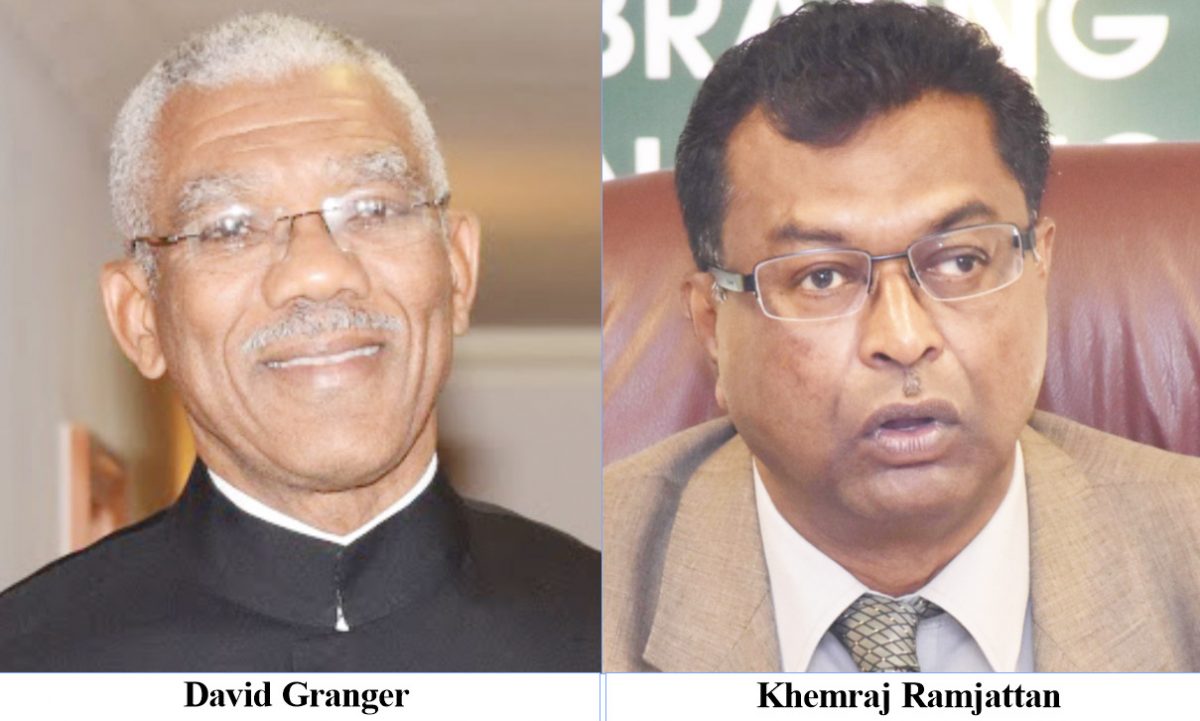There will be a shake-up of current AFC ministers should APNU+AFC be voted back into government next year as the revised Cummingsburg Accord entrusts the President with the duty of designating portfolios, sources familiar with the document says.
The ministerial appointments aspect of the accord was one of the main hurdles in the inking of the agreement, which was signed on Christmas Eve. This was because although both sides agreed on the 70/30 ratio of ministries to APNU and the AFC they could not agree to the AFC’s push that it be given four portfolios of its choice. During the negotiations the AFC had pressed for four ministries: Ministry of Public Telecommunications, Ministry of Public Infrastructure, Ministry of Natural Resources and Ministry of Public Security plus the Prime Ministerial position. However, in the revised accord the president will assign the AFC four ministries of his choice and the party will get to decide and make recommendations on who will head those.
The Revised Cummingsburg Accord was signed at State House by President David Granger, who is Chairman of APNU and Public Securities Minister Khemraj Ramjattan, who is the leader of the AFC, with APNU General Secretary Joseph Harmon and AFC General Secretary David Patterson signing as witnesses to the agreement.
The document, according to sources, states that the AFC’s recommendation for head of ministries must be “not unacceptable to the president.” One source said the president was adamant that although both sides have an agreement it cannot supersede the constitution, which he pointed out designates him to choose his ministers and cabinet. The accord’s current form lays the ground for a possible falling out due to interpretation since it was the very terminology that saw the breakdown in discussions for selection of a Chairman for the Guyana Elections Commission (GECOM). The president had then unanimously appointed retired Justice James Patterson as Chairman. That case went all the way to the CCJ which ruled that the president’s appointment was unconstitutional.
The signing was first made public on the AFC’s Facebook page. The media was not invited to the signing, which was officially announced after the fact by way of a joint APNU+AFC statement.
The joint statement reported Granger as saying that the Cummingsburg Accord was strengthened based on experiences garnered over the last four and a half years. He was also reported as saying that the coalition parties had worked well together and the Revised Accord would lay the foundation for a more enhanced quality of governance for all the people of Guyana. Ramjattan, the statement added, said the parties that make up the coalition were “better together” and congratulated the negotiating team that worked to fashion the revised accord.
No details of the revised agreement have since been released but the AFC last month confirmed that there would be a 30:70 ratio in favour of APNU in the allocation of parliamentary seats, while Ramjattan would be designated the prime ministerial candidate on the joint slate. The split was 40:60 under the previous agreement for the 2015 polls, where the coalition unseated the PPP/C after 23 years in office, albeit by a slim margin of votes.
When contacted last week, Harmon explained that the coalition would release a document containing the central elements of the agreement “in a few days.”
He explained that the official name for the agreement is the Revised Cummingsburg Accord, as it retains some of the features of the old accord, while featuring changes which he said are informed by experiences with, and interpretations of the Constitution, as well as missteps experienced during the current term.
Harmon did not specify what the experiences, interpretations, and missteps were.
Harmon said that in agreeing on the terms of the Revised Accord, the two parties “focused on governance and on constitutional reform, which are going to feature in a significant way in this accord, and it has been given prominence in terms of what we will do.” Constitutional reform, Harmon explained, will remain the responsibility of the Office of the Prime Minister, which office Harmon said will be strengthened, although he did not say in what way.
The Office of the Prime Minister has held the responsibility for constitutional reform since 2015 and critics have said that very little has been achieved. A Steering Committee on Constitutional Reform was commissioned, and, in 2016, submitted a report of its work, which included recommendations garnered through negotiations and the last reform exercise to Prime Minister Moses Nagamootoo. The Prime Minister’s office also initiated initiatives meant to sensitise the public on areas believed to be appropriate for revision, however, the actual reform process has been stalled.
The key features of the initial accord were that the AFC would have the prime ministerial position in the government and 12 seats in Parliament, but a source has said that under the new agreement the AFC would hold fewer seats and its designated prime ministerial candidate, Ramjattan, will not become the president were that position to become vacant.
Patterson last week said both he and the AFC were happy with the outcome of the negotiations, and the resulting agreement.
The reduced allotments to the AFC under the revised agreement is seen as a reflection of the belief that the party has lost support, particularly in light of its poor showing at the 2018 local government polls. The defection of an AFC member, Charrandass Persaud, resulting in the passage of a no-confidence vote against government in the House last year, is also believed to have influenced the negotiations.



